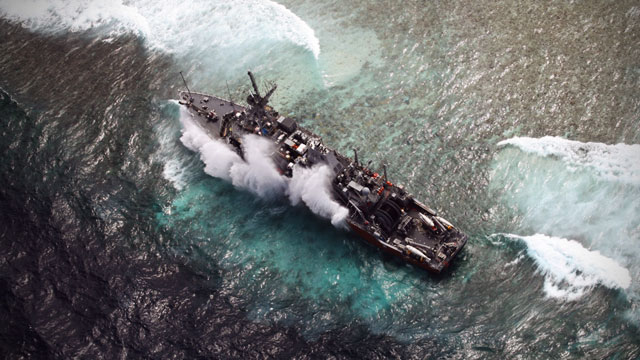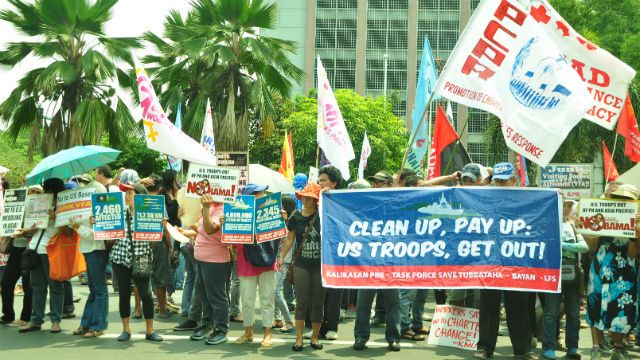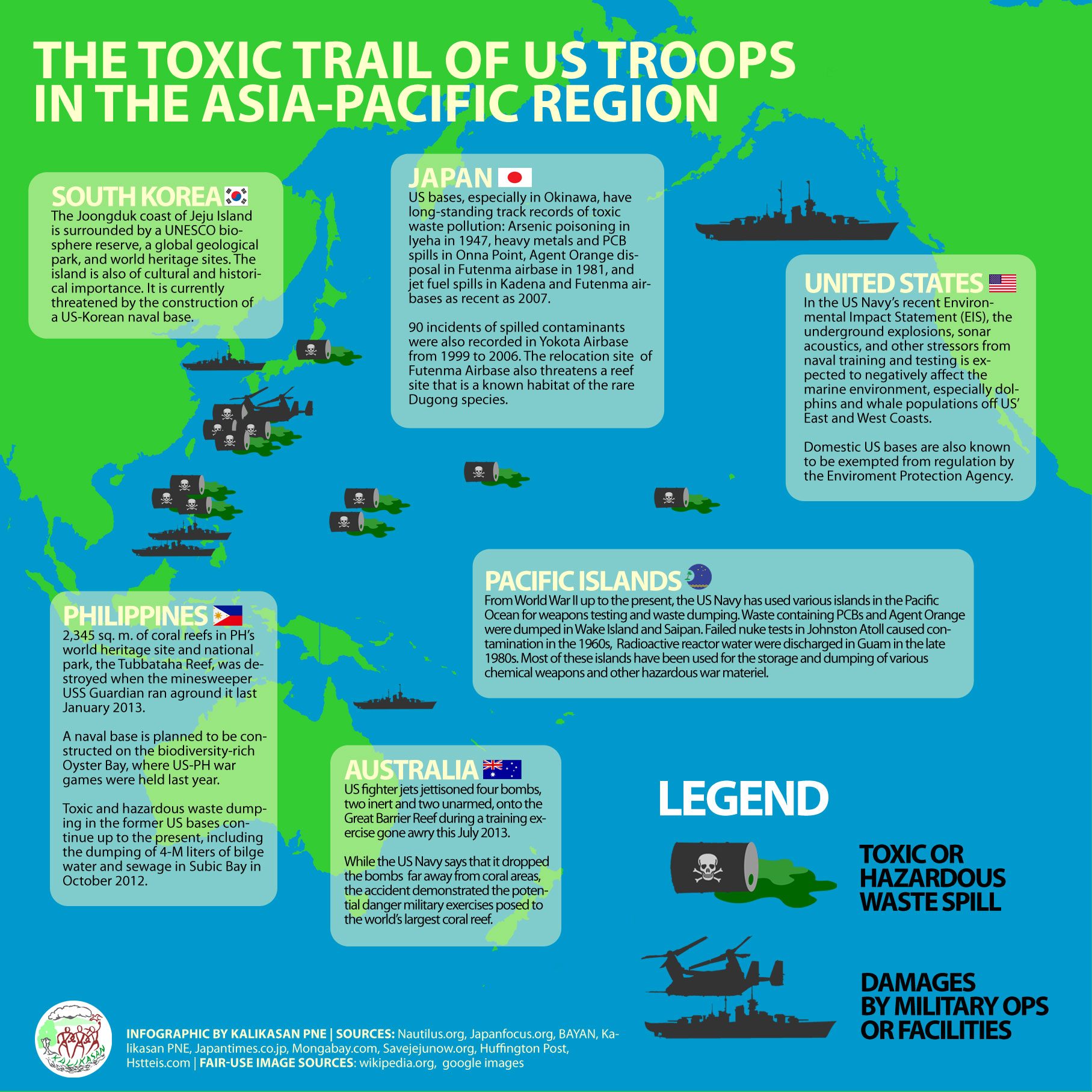SUMMARY
This is AI generated summarization, which may have errors. For context, always refer to the full article.
 Millions of people celebrated Earth Day 2014 across the globe last April 22 to promote environmental awareness and action.
Millions of people celebrated Earth Day 2014 across the globe last April 22 to promote environmental awareness and action.
In Baguio City, the multi-sectoral alliance Tongtongan Ti Umili observed it by staging a picket while the Supreme Court (SC) summer session was being held.
But residents and tourists who witnessed the action were rather puzzled. The protesters flashed placards that demanded, “Justice and compensation for Tubbataha Reef now!”
What business do people from the summer capital have with the coral reefs off the coast of Palawan?
Here’s a bit of context. Last January 17, 2013, the US warship USS Guardia ran aground near the Tubbataha Reef Natural Park, destroying 2,345 square meters of old-age coral reefs (READ: US Navy ship damaged coral in Tubbataha)

Heart that pumps marine life
The coral reef is a critical marine ecosystem – the heart that pumps life into the Sulu Sea and other nearby waters, which in turn enriches the livelihood of our fisher folks.
After 3 months of inaction by both the United States and Philippine governments, environmental advocates filed a ‘Writ of Kalikasan’ petition before the SC last April 17, 2013 to compel the US government to compensate for the damages. The groups also wanted to stop all US military activities within our territory that have been causing widespread environmental degradation and pollution.
The case remains unresolved more than a year after the incident. (READ: SC told: US access to bases bad for the environment)

Threat to life, livelihood, environment
The case of Tubbataha is as much a problem of any Filipino citizen as it is for the thousands of local communities who were directly affected by the damage caused by US Navy ship to Tubbataha. It represents serious and far-reaching consequences that threaten the people’s right to life, livelihood, and environment.
First, the incident in Tubbataha, one of our foremost world heritage sites, has serious implications to our national patrimony, or the inalienable right of the Filipino people to utilize and benefit from our natural wealth and heritage.
The inaction by the SC and the Aquino administration over the incident sends the message that the US government can get away with the environmental damage caused by one of its warships.
Military deal
Second, the incident portends what environmental crimes we can expect to swell in number with the impending return of US military bases.
The Aquino administration is fast tracking an Enhanced Defense Cooperation Agreement (EDCA) that allows for the de facto return of US bases by granting US troops unlimited access to domestic military facilities. This essentially increases permanent presence of US military forces within Philippine territory.
A look at the history of US military activities across Japan, South Korea, and down to the Pacific Islands speaks volumes of the environmental degradation that the EDCA will likely aggravate.
‘Dirty and destructive’ corporations
Third, the increased militarization is inextricably linked to Obama’s pursuit of the Trans-Pacific Partnership (TPP) – the biggest corporate power play that threatens the national patrimony of countries in the entire region.
The TPP aims to create a free-trade corridor covering across the Pacific Rim where foreign dirty and destructive corporations are allowed full ownership of domestic lands and resources.
The corridor will also pave the way for ‘corporation tribunals’ which can sue governments impeding corporate profit.
Indeed, the return of US bases in the Philippines will greatly contribute to the Obama administration’s approach to promoting a corporate power play in the region. It will provide the military muscle that will challenge China in the region’s trade routes, markets, and vast resources including untapped oil and gas reserves in the West Philippine Sea.
Obama’s visit
No wonder that the Obama administration’s ‘pivot to Asia’ – the shifting of 60% of US fleet to the Asia-Pacific – and the TPP are on top of the agenda of the US President’s official visit to the Philippines. (READ: Obama visit to give ‘clearer understanding’ of PH-US alliance)
The Aquino administration seems bent on welcoming the Obama agenda with open arms, as it is railroading both the AEDC and the charter change on economic provisions, a prerequisite to PH’s entry into the TPP.
It’s no coincidence that Aquino is also fast-tracking the construction of a naval base in the resource and biodiversity-rich Oyster Bay in Palawan.

History’s lesson
In the midst of it all, Aquino has remained silent on the Tubbataha case, which would have thrown a significant monkey wrench into the US geopolitical engine.
Should we allow this impending return of US bases in the country? History has taught us that we clearly shouldn’t.
But history has also shown us – through the success of the broad and patriotic mass movement that toppled the original US bases treaty – that we can win against this gargantuan environmental challenge if, and only if, we are able to make this everyone’s business. – Rappler.com
Leon Dulce is the current campaign coordinator of the Kalikasan People’s Network for the Environment (Kalikasan PNE), a national network of people’s organizations, NGOs and environmental advocates that was established in 1997 to address environmental issues which continue to worsen the lives of the Filipino people.
Add a comment
How does this make you feel?
There are no comments yet. Add your comment to start the conversation.